Education, Academy, Incubator
The beginning of Plectrum education
-
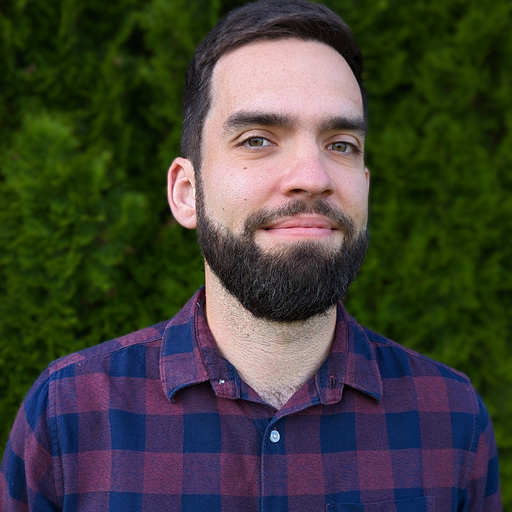 Samuel Hopko
Samuel Hopko
- June 1, 2024
- 5 mins read

How did it all start?
It was the year 2014 at University of Zilina, Faculty of Management Science and Informatics, when Daniel and I were thinking about the topic for our master's thesis. The decision-making process was not easy, and we struggled to find something that would make us say, "Yes! This is it!". To be honest, I don't exactly remember how we came across cloud computing as a topic. At that time, "cloud" was almost an unknown word, and the best you could get when you were Googling was Dropbox as a cloud storage. We started to be curious and looked for companies that had some experience with it. We found two; one was based on VMware, and another one on OpenStack. As we delved more into the topic, OpenStack was definitely something that made us say, "This is it!". At that moment, without our knowledge, our journey in the cloud began.
We gathered all the available information from IEEE and NIST standards and translated it into the Slovak language so we could set the foundations of cloud computing at the faculty. We bought our first second-hand server (pictured below) and named it Nubes, a Latin word for clouds. Those were that hardcore times when making a mistake meant physically coming to the server and reinstalling it, many times including the operating system. Oh boy, and we did it so many times from scratch. Long story short, our joint project was a huge success, and we were asked if we wanted to continue as PhD students. It was a tempting offer because we somehow already felt that we loved to share knowledge and educate others. In the end, we turned down the offer and jumped into the world of DevOps at a Dutch fintech company. While we declined the offer, we agreed with the faculty’s management that we would try to help as much as we could as external professionals.
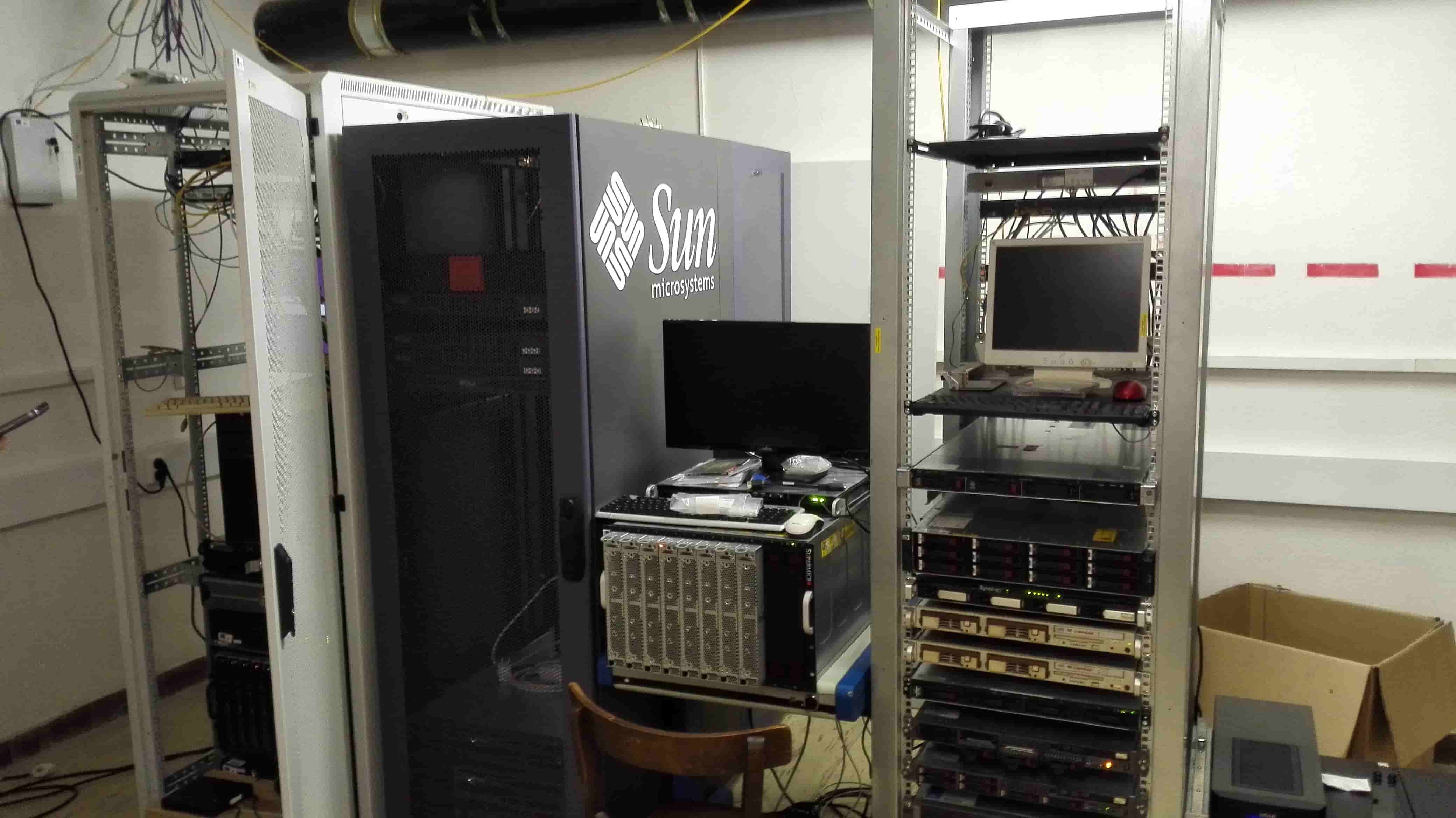
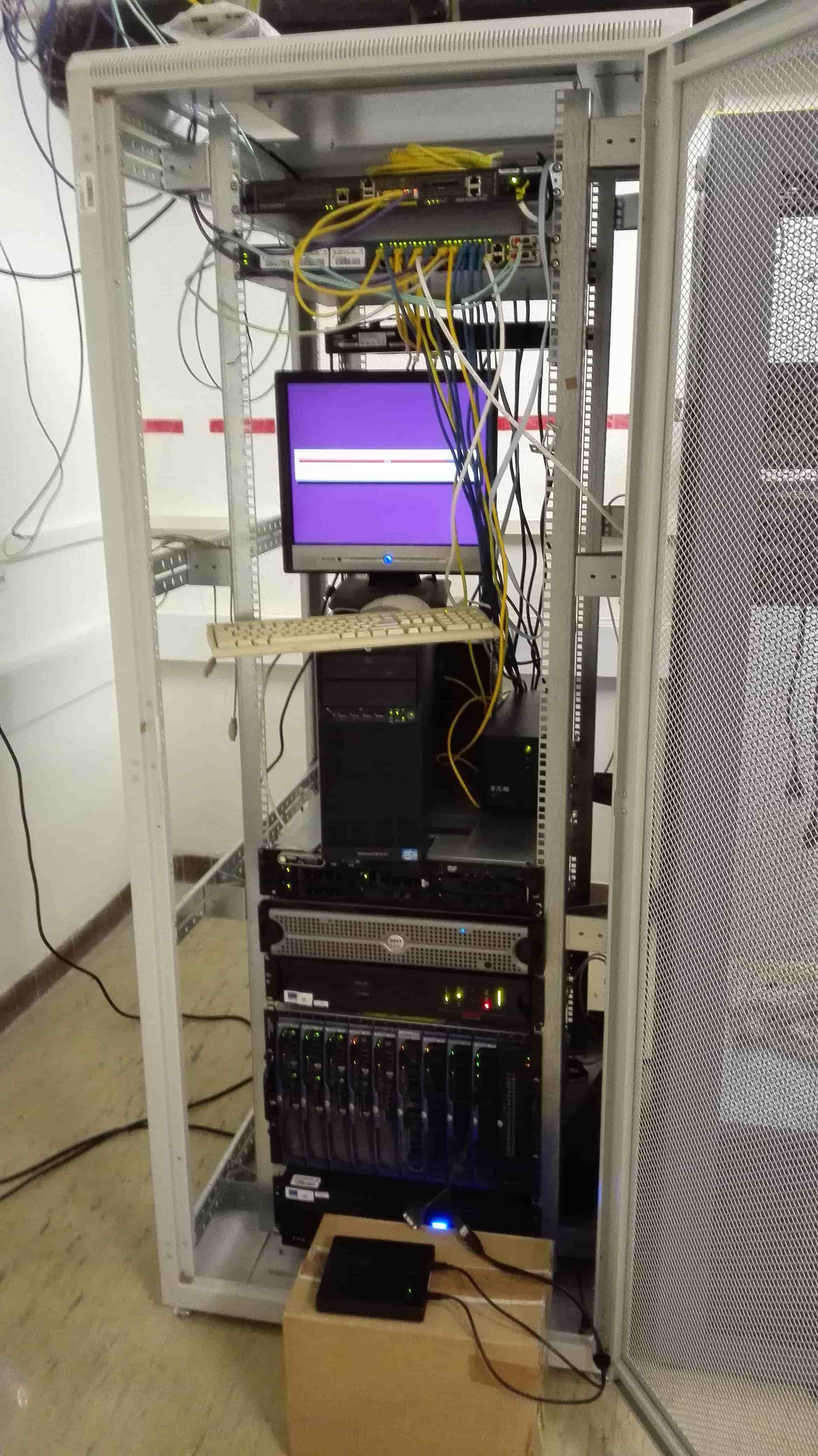
Collaboration with the university
The year was 2015, and since then, this collaboration has continued to the delight of both sides. IT is an extremely fast-paced environment, and universities simply cannot keep up with the speed of changes. Nevertheless, it's admirable that they recognize this and seek help from external professionals to provide students with hands-on experience. This way, we've been able to teach students every year how to work with OpenStack, what to expect in a DevOps engineer role, and how to use industry-standard tools like Terraform, Ansible, containerization, Kubernetes, AWS, and so on. In our classes, students can experiment with tools that they'll encounter a few months after their studies if they apply for a DevOps position. In the pictures, you can see our educational beginnings in 2015 and 2017.
A few years later, not too far in the past, we experienced another moment of pride when the faculty decided to update their study program to focus more on virtualization and cloud computing, keeping up with trends in the world of cloud. We are happy that our "child" has been in good hands since we left it in 2015, and that people at the faculty continues to maintain it. Most importantly, students use OpenStack to learn the basics of cloud computing, methodologies like infrastructure as code, and uses it for research and educational subjects like security. OpenStack has become a stable tool in the education process. The faculty even receives recognition outside of the university for this, which is truly fantastic. Nowadays staff have become AWS certified and they provide classes leveraging AWS too.
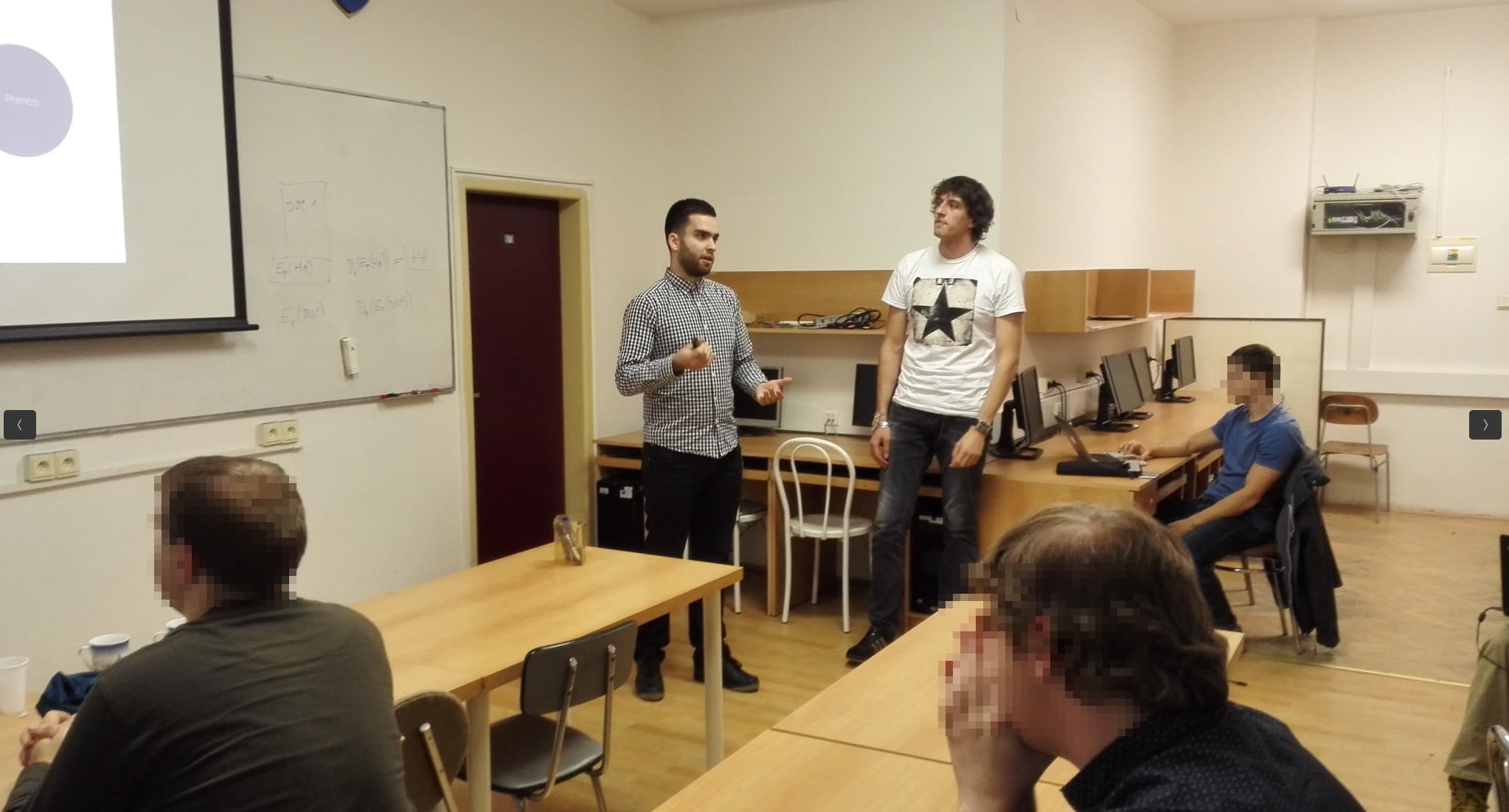
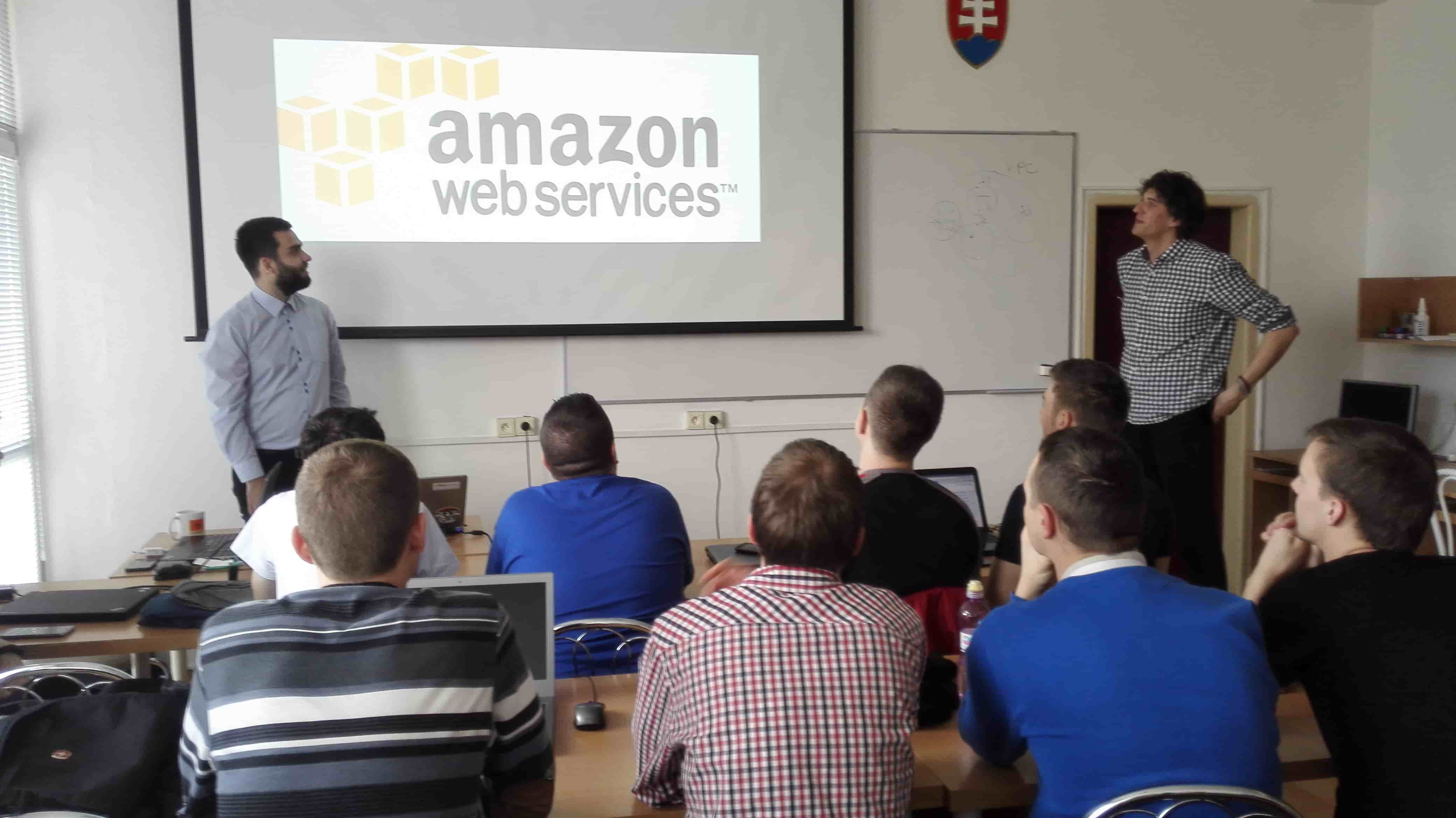
The age of Plectrum Engineering
Later on, when we decided to found Plectrum Engineering, it all came together. We had enough "spare time" to focus on sharing knowledge with others. Actually, one of the core values of our company is "mentoring". Thus, we created two educational programs: Plectrum Academy and Plectrum Incubator.
Plectrum Academy
Plectrum Academy is simply an evolution of what we've been doing for the past 10 years - teaching students. We had enough experience and educational materials to also offer this as commercial lectures. On the other hand, the Incubator was supposed to be something new. The picture shows the last classes in 2024 covered by Plectrum Academy.
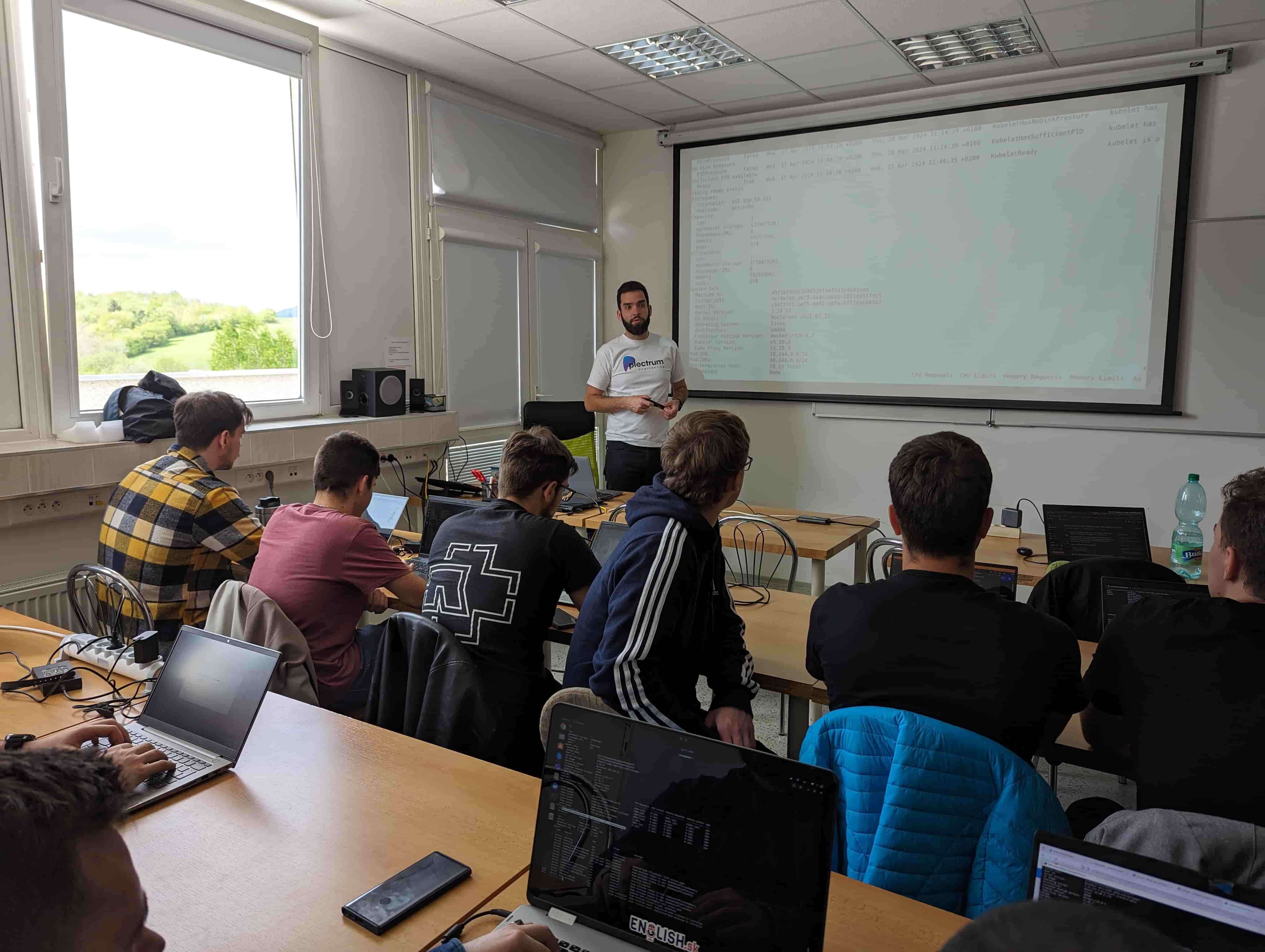
Plectrum Incubator
Plectrum Incubator is dedicated to juniors who lack knowledge but are enthusiastic and willing to go the extra mile. We were once juniors too. We understand exactly how important it is to have a good mentor to guide you through the unknowns and help you grow. We were the lucky ones who had mentors in pre-Covid times, when it was easy to walk up and physically ask older colleagues when we had a question. Now, it can be more complicated. Companies are seeking experienced engineers, and not all of them have the opportunity to educate juniors, especially in times of cost-effectiveness.
Daniel often says that he meets with companies that always complain about a lack of employees or experienced engineers. However, when he asks them, "What have you done to overcome this?", the answer is almost never "we hire juniors and educate them" or "we collaborate with universities to get the talent". So here we are, offering talented juniors experienced mentors and access to knowledge for free.
We often get questions like “Why for free? Why do you do it? What do you get from that?”. We believe that it shouldn’t always be about getting and many times people forget about giving. We love the energy and collaboration with enthusiastic people. That energy and enthusiasm is what we get, and in return, we give our valuable knowledge.
The future
We are currently at the beginning of our first Plectrum Incubator batch. We need to evaluate, fine-tune, and progress with the main idea that "knowledge should be shared and not kept as a secret." Follow our LinkedIn page to keep yourself updated. We will document our thoughts and experiences with the program.
Cheers!
